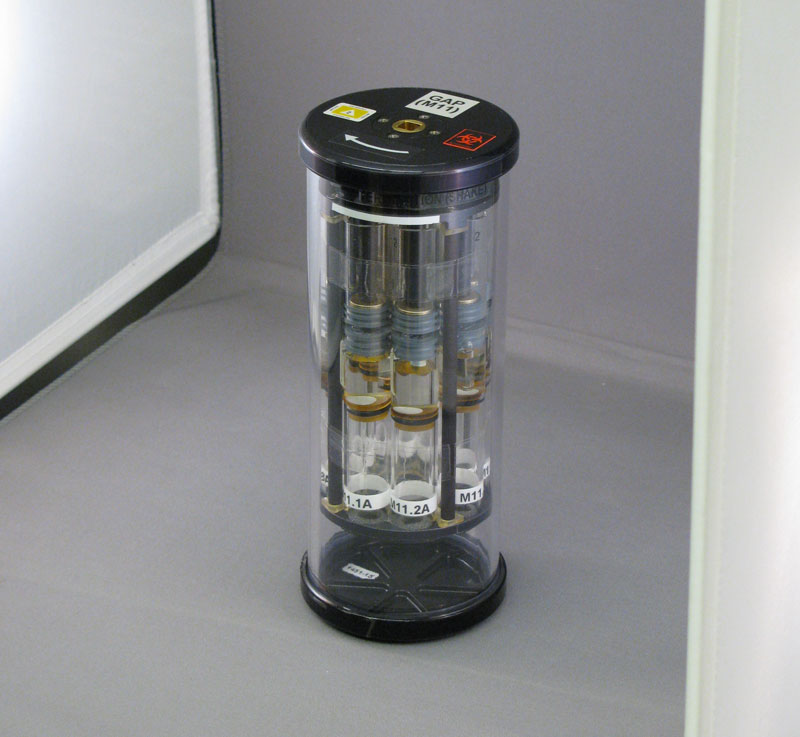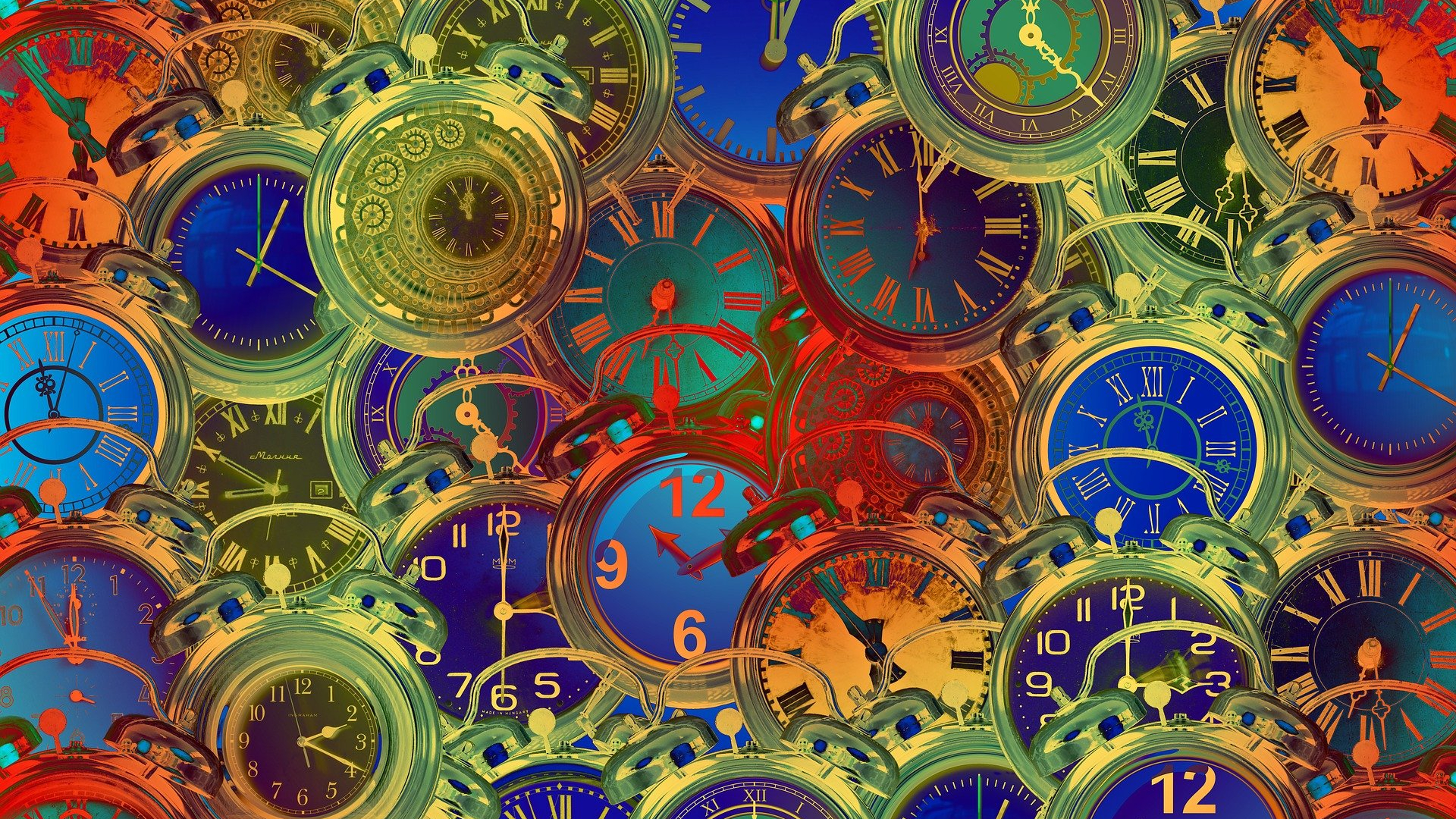Bacteria Army Launching on Space Shuttle Atlantis

Breaking space news, the latest updates on rocket launches, skywatching events and more!
You are now subscribed
Your newsletter sign-up was successful
Want to add more newsletters?

Delivered daily
Daily Newsletter
Breaking space news, the latest updates on rocket launches, skywatching events and more!

Once a month
Watch This Space
Sign up to our monthly entertainment newsletter to keep up with all our coverage of the latest sci-fi and space movies, tv shows, games and books.

Once a week
Night Sky This Week
Discover this week's must-see night sky events, moon phases, and stunning astrophotos. Sign up for our skywatching newsletter and explore the universe with us!

Twice a month
Strange New Words
Space.com's Sci-Fi Reader's Club. Read a sci-fi short story every month and join a virtual community of fellow science fiction fans!
Clustersof bacteria that are typically harmless on Earth can pose a health risk toastronauts when they find their way aboard space habitats. To combat that spacemicrobe menace, scientists plan to launch an army of the bacteria Friday aboardthe space shuttle Atlantis to test whether they can grow on novel new materialsspecially engineered to fight them.
Thetinyspace travelers will hitch a ride to space inside eight storage packs onAtlantis, each of which contains 128 vials. A similar control group of bacteriawill remain on Earth, so that scientists can compare how the two groups fare.
"Weknow that gravity plays a key role in the development of biological systems,but we don?t know exactly how a lackof gravity affects the development of bacteria and biofilms," said studyprincipal investigator Cynthia Collins, a chemical and biological engineer atRensselaer Polytechnic Institute in Troy, NY.
Spacebacteria can pose more than a health threat to astronauts. The microbes canaffect hardware too.
Somebacterial biofilms, complex three-dimensional microbial communities, wereresponsible for increasing corrosion and damage a water purification system onthe Russian space station Mir, NASA researchers said in a statement.
Inaddition to studying the bacteria growth, Collins and other researchers workingon the Micro-2 experiment also plan to test a newly developed antimicrobialsurface built by using nanotechnology.
?Usingdefense mechanisms found in nature, we have ?packaged? highly efficientbactericidal activity into functional surface coatings," saidco-investigator Jonathan Dordick, also of Rensselaer Polytechnic Institute."These surfaces do not cause toxic agents to be released, therebyproviding a surface that is safe to humans but effective in destroyingpathogenic bacteria."
Breaking space news, the latest updates on rocket launches, skywatching events and more!
Suchsurfaces might someday help prevent the formation or spread of bacteriain space and in hospitals.
Bacteriaclusters, known as biofilms, exist both inside and outside the human body.Scientists have discovered that they?re mostly harmless, even if some arerelated to disease.
Buttoughened biofilms that survive hostile environments such as hospitals ? orconfined locations like space shuttles ? can also become resistant toantibiotics. They might even become more potent just from living inmicrogravity.
Apast animal study showed that the Salmonella typhimurium bacteriaresponsible for food poisoning and typhoid fever can become three times moredangerous when exposed to the zero gravity environment of space.
Thatpresents a potentially huge problem for astronauts, because evidence has shownthat humans suffer from weakened immune systems and become more vulnerable toinfection in microgravity. Furthermore, researchers still don?t know exactlyhow microgravity affects the survival and spread of bacteria.
"Thismeans while certain bacteria may be harmless on Earth, they could pose a healththreat to astronauts on the International Space Station or, one day, long spaceflights," Collins noted.
Atlantis'space mission ? slated to be the shuttle's last-ever spaceflight ? is onlyexpected to run about 12 days. The shuttle is due to launch Friday at 2:20 p.m.EDT (1820 GMT) from NASA's Kennedy Space Center in Florida and arrive at thespace station on Sunday.
Atlantiswill also deliver a new Russian science module to the space station, along withspare parts for the nearly complete orbiting laboratory.
- Gallery - Life Aboard the Space Station
- Earth Microbes Not Likely to Contaminate Mars, Scientists Say
- The Invisible World: All About Microbes
SPACE.comis providing complete coverage of Atlantis' STS-132 mission to theInternational Space Station with Senior Writer Clara Moskowitz in CapeCanaveral, Fla., and Managing Editor Tariq Malik based in New York. Clickhere for shuttle mission updates and a link to NASA TV.

Space.com is the premier source of space exploration, innovation and astronomy news, chronicling (and celebrating) humanity's ongoing expansion across the final frontier. Originally founded in 1999, Space.com is, and always has been, the passion of writers and editors who are space fans and also trained journalists. Our current news team consists of Editor-in-Chief Tariq Malik; Editor Hanneke Weitering, Senior Space Writer Mike Wall; Senior Writer Meghan Bartels; Senior Writer Chelsea Gohd, Senior Writer Tereza Pultarova and Staff Writer Alexander Cox, focusing on e-commerce. Senior Producer Steve Spaleta oversees our space videos, with Diana Whitcroft as our Social Media Editor.
